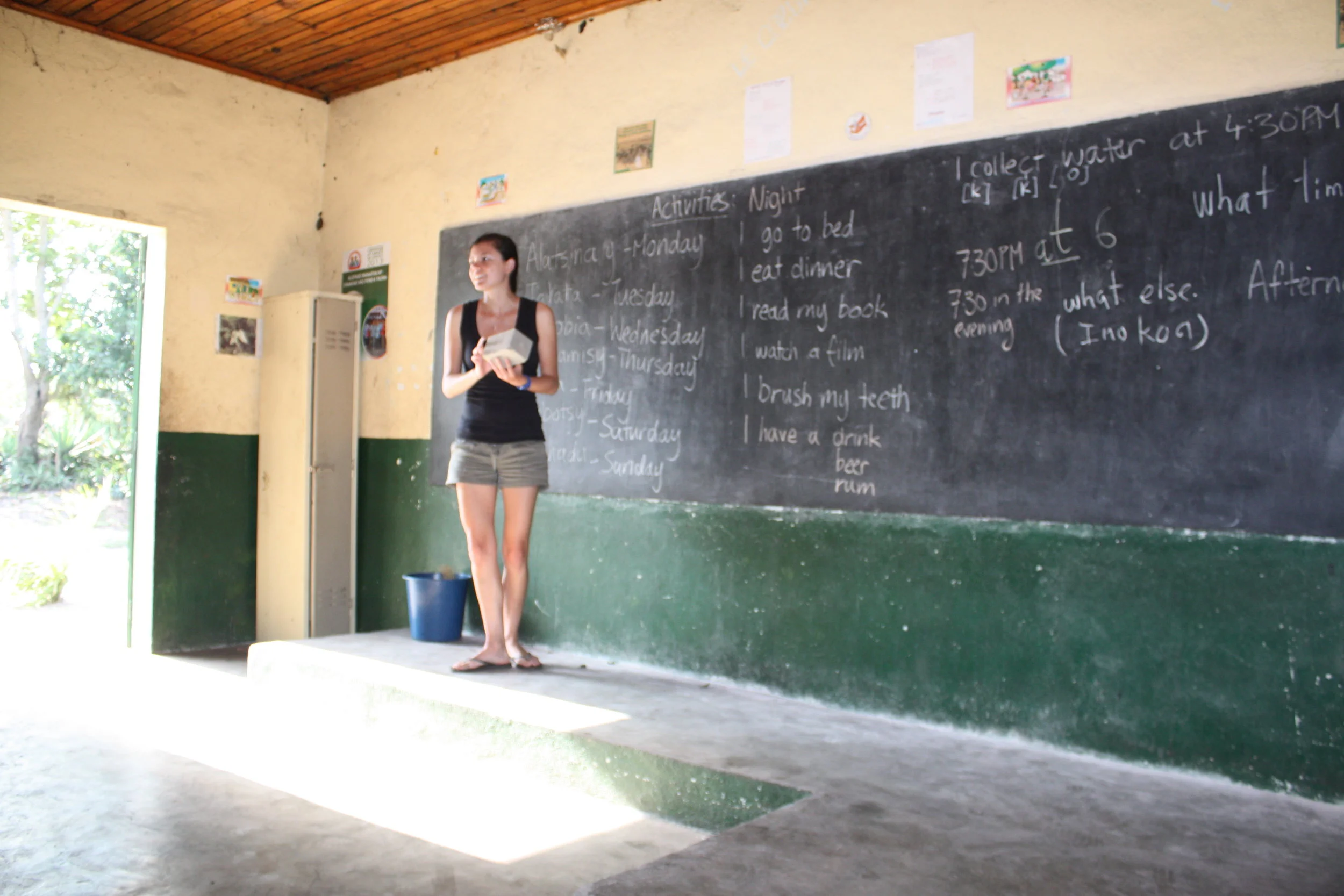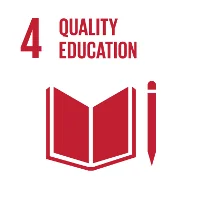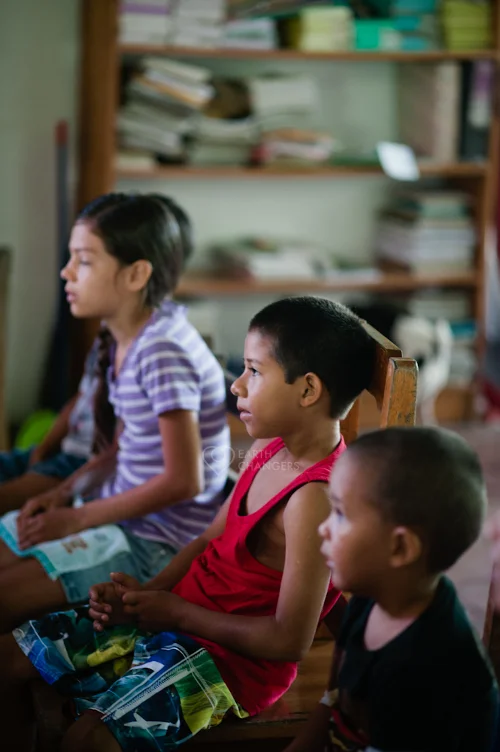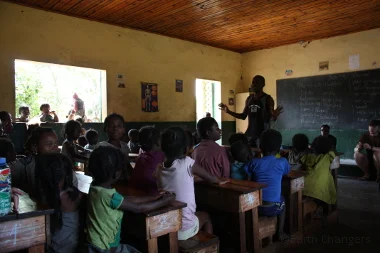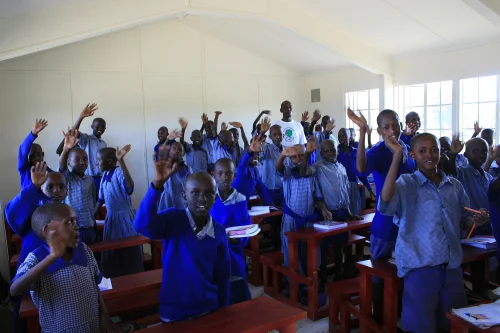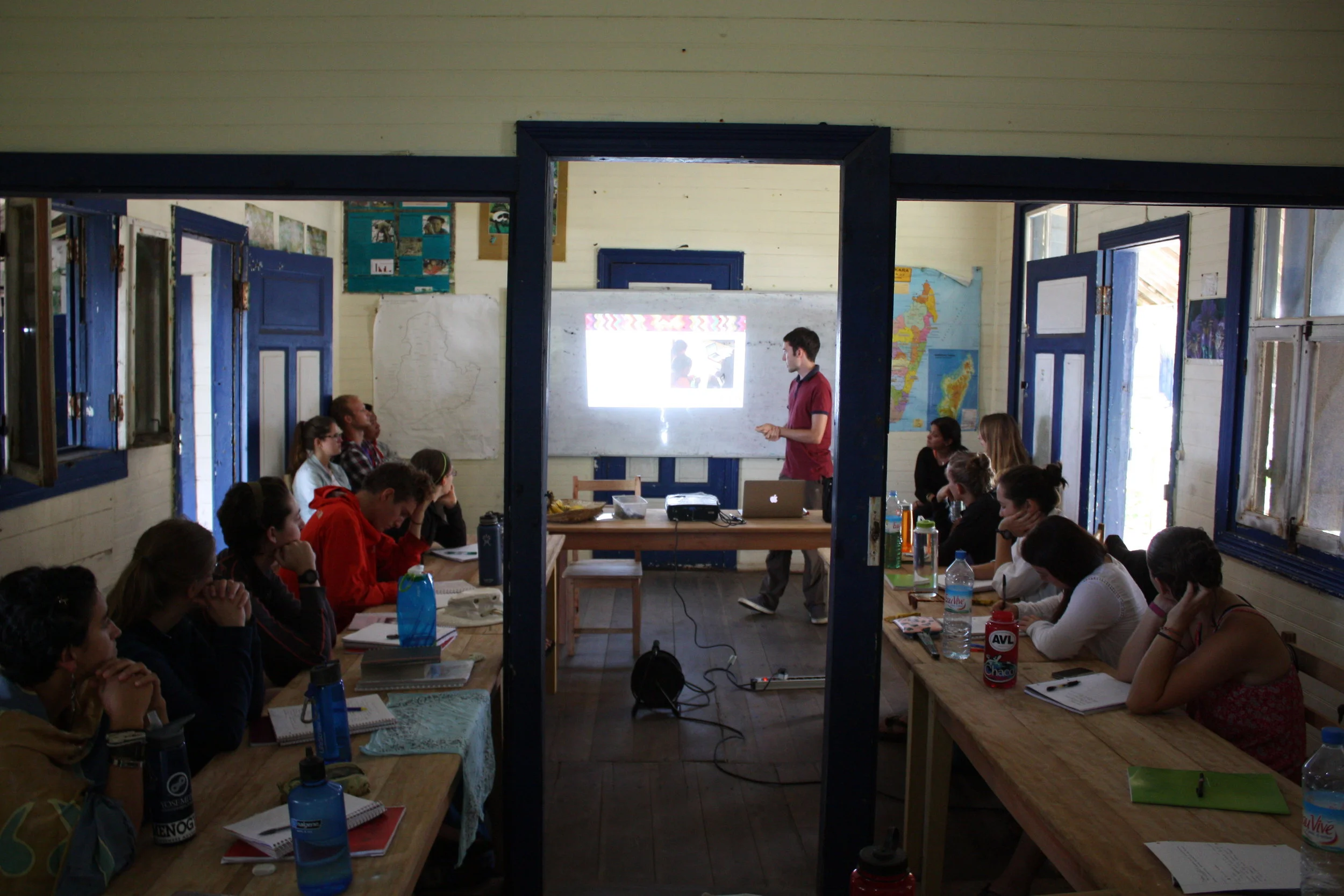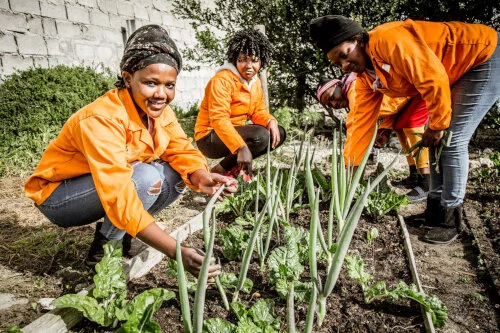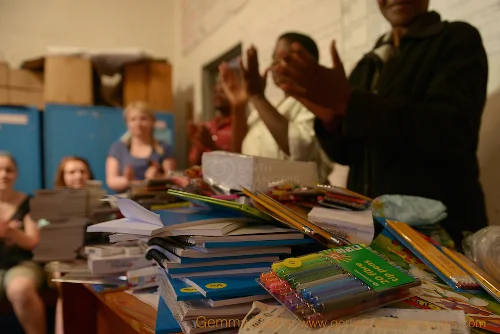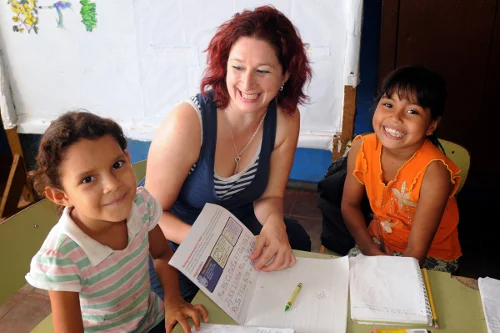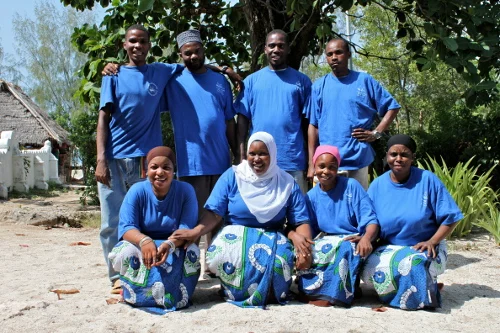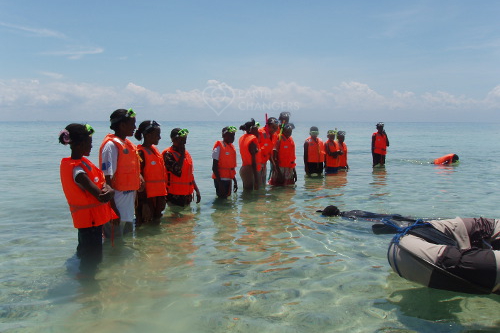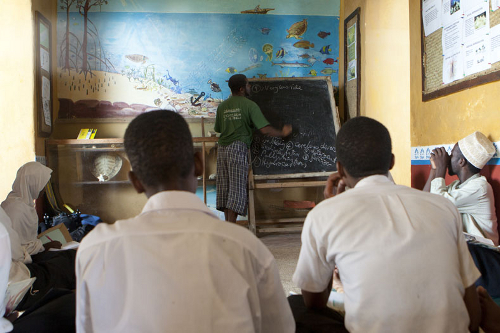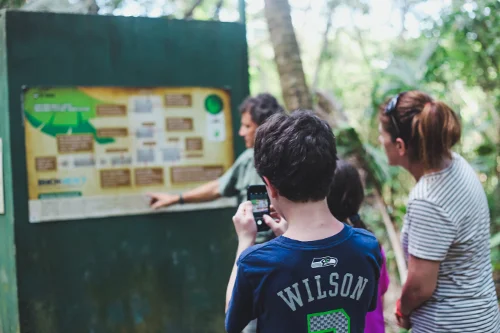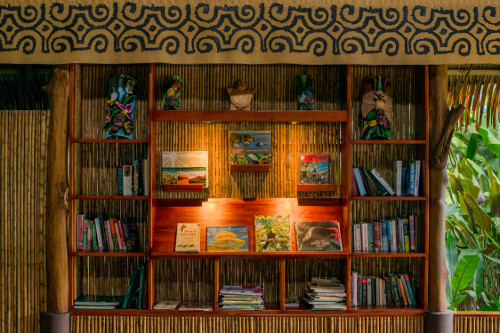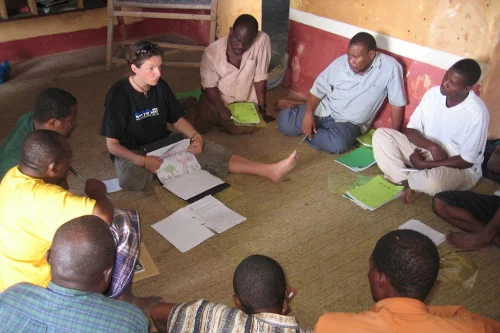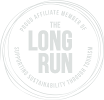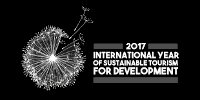Universal Education: How Tourism Can Help?
Education is one of the most powerful and proven vehicles for sustainable development, enabling upward socioeconomic mobility and poverty escape. Yet in many places throughout the world, children don't have much chance of completing school. Many school-aged children have never even been to primary school, let alone attended middle or high school or graduated.
Despite years of progress in access to education and enrolments, particularly for girls, it has been too slow: about 260 million children were still out of school in 2018 — nearly one fifth of the global population in that age group. 1 in 5 are estimated to drop out and 2 in 5 never set foot in a classroom (UN Sustainable Development, 2016) - and that was before Covid’s impacts.
For this reason,'Quality Education' is Sustainable Development Goal #4 of the 17 Global Goals of the 2030 Agenda for Sustainable Development:
SDG #4 “Quality Education: Ensure inclusive and equitable quality education and promote lifelong opportunities for all".
The goal aims for all girls and boys to complete free primary and secondary schooling by 2030, to provide equal access to affordable technical and vocational education and training (TVET), to eliminate gender and wealth disparities, and achieve universal access to a quality higher education and lifelong learning opportunities.
Progress on Sustainable Development Goal 4 Quality Education
763 million young people and adults lacking basic literacy skills (UNESCO, 2020)
17%: the proportion of children out of primary and secondary school in 2018, having declined from 26% in 2000 to 19% in 2010. Enrolment in primary alone had reached 91%, however 57 million primary-aged children remain out of school, mostly sub-Saharan Africa (UNDP), and mostly girls.
200 million+ children out of school, with only 60% of young people completing upper secondary education is expected in 2030 even before the Covid crisis..
1 in 4 girls are not in school in developing countries (UNDP)
More than half of children that have not enrolled in school live in sub-Saharan Africa, and more than 85% of children in sub-Saharan Africa are not learning the minimum expected.
617 million youth worldwide lack basic mathematics and literacy skills: 6 out of 10 worldwide.
19%: children with disabilities less likely to achieve minimum proficiency in reading, in 10 low- and middle-income countries.
4 million refugee children were out of school in 2017.
34%: children’s school completion rate in low-income countries in the poorest 20% of households. it s 97% in the richest 20% of households.
The Impact of Covid on SDG 4 Quality Education
Goal 4 aims to keep children in school and ensure they complete their education. Inequalities in education have been exacerbated by Covid-19. In 2020, as the pandemic spread across the globe, 190+ countries announced the temporary closure of schools, impacting more than 91% of students worldwide. Never before have so many children been out of school at the same time, disrupting learning and lives.
Especially for the most vulnerable and marginalised, school is not only a place to learn but also a safe place, removed from violence, where they can receive free meals, and health and nutrition services such as vaccinations, deworming and iron supplementation. Without them, many children go hungry, which also threatens their immune systems and their capacity to cope with disease.
1.6 billion children and youth were out of school by April 2020.
1/5 countries with school closures didn’t provide distance learning solutions: at least 500 million children and youth were excluded due to lack of access to computers and the Internet at home, and low computer-literacy skills, putting already marginalized students at a further disadvantage:
In 2019, around 87% of households in Europe had Internet access at home, compared with 18% of those in Africa.
78% of European households owned a computer compared with 11% in Africa.
In about half of the 86 countries for which data is available, less than half of the population possessed basic computer skills.
379 million children who rely on school meals needed to look to other sources for daily nutrition.
Many schools also lack other basic resources: 11% of upper secondary schools lack electricity, 15% lack basic drinking water, 35% primary / 29% lower and 24% upper secondary schools lack basic handwashing facilities; 26% lack computers and 30% have no Internet access: Those in sub-Saharan Africa are the most disadvantaged.
Reduced productivity of working parents poses challenges to family and society: previous crises studies show, school closures and economic downturn may also increase rates of violence against children, child labour (working to compensate for lost family income), child marriage and early pregnancies.
Without remedial action, the effects of COVID-19 will only add to the obstacles faced by poor children in completing their education, but the unknown-as-yet consequences on livelihoods may be far-reaching and jeopardize previous gains made in improving global education.
In addition, the cost of fighting COVID-19 and the reduction in tax revenues caused by economic downturn are likely to have a negative effect on education spending by governments and on global aid to education. (UN, 2021)
Challenges of SDG4, Education
Education is actually the issue most commonly addressed by companies’ social responsibility actions to advance the UN goals, demonstrating that the business community views education as a top global development priority, and helping reduce its reliance on global aid. Measuring learning achievement, starting in the early grades, will help to identify where schools are failing to meet their commitments to children and to formulate appropriate remedial action.
The tourism industry can be an especially valuable partner and incentive to improve education, located in the same local environment and offering the potential for jobs, training and investment.
One of the founding principles of Lapa Rios in Costa Rica was in supporting education as a long-term empowerment tool to sustain isolated wilderness regions, wanting to eliminate the need for people to leave rural communities for education or professional opportunities.
And in South Africa, Grootbos have offered a formal course in horticulture, guiding and hospitality since 2003 at their Green Futures College, giving vocational skills to community youth to enable change to their lives: Over 300 young people have graduated, with more than 90% of graduates finding employment on completion of the course, 40% with the lodge itself. In addition, they are working with working with 6 early childhood development centres reaching over 200 children per annum.
Infrastructure: Limited state funding for education sees minimal government-provided support. Children often have to walk many miles to schools which are vastly over-subscribed and in disrepair, studying all day lacking even the most basic of furniture with uncomfortable and inadequate facilities and equipment.
SEED Madagascar work with local government and communities to build new schools, repair existing buildings, provide furniture and facilities, and support teachers. Once construction is complete, each community takes on responsibility for ongoing maintenance of the buildings with SEED's support to ensure the benefits are felt for years.
When Lapa Rios Ecolodge was built in 1992, the local people asked for help to build a primary school, requiring raising $45,000 for a pre-fab kit of two classrooms, a dining hall, a lavatory with flush toilets, and a teacher's house. While raising the funds, a taxi-truck was hired to take the children to the primary school in Puerto Jiménez every day, until it was finished in 1993. Support the primary school which you can visit when you holiday at Lapa Rios.
The Maasai Wilderness Conservation Trust have constructed 8 classrooms, a 2 bedroom head teacher's house, a modern library complete with books and computers, piped water and solar power for Iltilal Primary School’s 1000 children.
In addition, the Kanzi Academy supports the most gifted students from all over Kuku Group Ranch to board and study to develop future community leaders. Support the Trust’s education projects, stay at Campi ya Kanzi
In Morocco, the Village Association has helped construct a school for 80 children in an outlying valley, for those where distance would otherwise make education inaccessible.
Teaching staff: Round the world, there are low numbers of paid teachers, and almost non-existent teacher training. New primary school teachers are needed: nearly 26 million of them by 2030 by current estimates. Africa faces the greatest challenges in this regard, with nearly 7 in 10 countries experiencing acute shortages of trained teachers with just 64% trained at primary level and 50% trained at secondary level.
In Nepal, where education IS social security, guest support has enabled Tiger Mountain Pokhara Lodge to provide the salary of one teacher, teaching materials, the rebuilding of the secondary school block with improved facilities and sponsorship for pupils and staff's children. This has enabled classes to be taught to School Leaving Certificate level, particularly beneficial for female students to complete education within the community, and a volunteer mentor programme for the schools teachers’ own English teaching skills.
The Maasai Wilderness Conservation Trust have employed 56 certified teachers and 12 school support staff in 22 schools, with over 8000 students and a scholarship program for 47 students thus far, as well as providing school supplies and support for extra-curricular activities, school clubs and sports clubs. Maasai elders are also employed to assure Maasai lore is transmitted to pupils in school. Support their initiatives with a stay at Campi Ya Kanzi >>
Literacy: At the end of primary school, children should be able to read and write and to understand and use basic concepts in mathematics.
Some 750 million adults – two thirds of them women – were illiterate in 2016. Half of the global illiterate population lives in South Asia, and a quarter live in sub-Saharan Africa.
Language: Often English education is very limited due to a number of the above reasons and a lack of skilled teachers, negatively impacting students’ chances of learning and progressing on to further education and employment, for which English may be a prerequisite. A lack of English language skills can lead to people and places being effectively cut off from national and international trade routes and development opportunities.
SEED Madagascar aim to improve the English skills for trade amongst the local Chamber of Commerce businesses and their own NGO staff with business and job focused English lessons.
Tourism’s importance to national and local economies (usually in the top 3 industries for the Least Developed Countries), makes the English language an extremely valuable skill all over the world, and to international business as a whole as the world’s global language.
The use of digital technology, often widely accessible in areas of poverty, is also often conducted in English. (More people now have access to a mobile phone than a toilet – United Nations, 2013). This not only provides an opportunity for developing and synthesising personal and business use vocabulary, but also new platforms to capitalise on to enhance English education provision through media.
Inclusiveness: The tourism sector can provide incentives to further invest in education and labour mobility, especially inclusive of youth, women, senior citizens, indigenous peoples & those with special needs, also helping teach values of tolerance, peace, global exchange and citizenship. A well-trained and skilful workforce is crucial for tourism to prosper.
Lapa Rios in Costa Rica found their construction of the local primary school and community education wasn’t just about reading and writing, but also conveying new ideals like sustainability and building self-esteem. So they became a school for everyone, helping support a community around the idea of conserving the rainforest, as well as educating guests. Now the Lapa Rios Reserve can only ever be used for educational purposes legally, conserved as it is in perpetuity.
Tiger Mountain Pokhara Lodge provides staff an education allowance to subsidise costs of up to two children from kindergarten to School Leaving Certificate age 17.
In Morocco, the Kasbah du Toubkal’s costs include contribution to Education for All charity to enables young girls from local villages to pursue further education by providing scholarships and high quality boarding houses, where it would normally be not only cost-prohibitive but also socially unacceptable for girls to be away from family. Now disadvantaged girls 12-18 can complete secondary school and university.
Nikoi Island focuses on great investment in staff training in various professional skills such as barista, scuba, nature, sailing, windsurfing, tennis, cooking. As a result, Nikoi has a very high staff retention and loyalty, which translates to great guest experience of experienced staff. Go yourself and see >>
Grootbos Private Nature Reserve’s organic farm, Siyakhula meaning ‘growing the future’ provides entrepreneurship and enterprise development skills and income for women from the nearby township, as well as supporting food security.
Links between Tourism, Education & Other Global Goals
Goal 1 End Poverty: Children from the poorest 20 per cent of households are nearly four times more likely to be out of school than those of the richest households. Becoming trapped in a cycle of poverty can result in limited opportunities for employment or income generation.
Helping people out of poverty can increase access to education, and increased access to education can help people out of poverty.
In Malawi, RSC works in partnership with inspiring community initiatives offering immersive learning opportunities for individuals, students & businesses to gain an insight into and thus supporting key global challenges facing rural communities in Africa.
Hands-on participatory workshops with practical subject matter include Education and Local Economic Development, and how they inter-relate with Fair Trade, Environment, Healthcare, Water, Sustainable Agriculture and Climate Change. Join a workshop >>
Goal 3 Health & Well Being: Education and training of medical professionals is essential for building effective health systems, in complement to consumer behaviour-change based education programmes to be effective in addressing the risks associated with both infectious and non-communicable diseases.
Jicaro Island Ecolodge in Nicaragua supports local community health through the local school. They’ve decorated classrooms, upgraded equipment, and helped make the school usable after dark with solar power for adult education and as a medical centre. Vitally, they have installed a filtration system to provide safe drinking water for the school and 600-strong community, rather than their drinking lake water, and have created “A glass of milk” initiative to fight malnutrition.
Goal 5 Gender Equality: Worldwide, in 2013, two thirds of the 757 million adults (aged 15+) who were unable to read and write were women; 1 in 10 girls were out of school, compared to 1 in 12 boys. Accessing education helps women access employment and incomes, helping them achieve greater economic equality. Increased educational attainment accounts for about 50% of economic growth in OECD countries over the past 50 years, over half of which is due to girls experiencing greater access to education. Overall, education empowers women to take a more active role in society.
At Chumbe Island Coral Park, women are strongly supported to bring gender equality, and currently form 40% of the workforce. A women’s cooperative also produces all the organic soaps used in the banda bungalows. Visit Chumbe >>
Goal 6 Clean Water and Sanitation
SEED Madagascar’s WASH programme has delivered water, sanitation, and hygiene (WASH) educational lessons to 6,567 primary school children and family knowledge sharing sessions.
Goal 8 Decent work and economic growth: Education and skills development equip people for productive and sustained employment and entrepreneurship. Employment and entrepreneurship are, in turn, core drivers of economic growth.
Lifelong learning through sustainable development also supports global citizenship, which can help address overarching society requirements such as ‘living together’ and the ‘relationship with nature’.
An original mission setting up Chumbe Island Coral Park was free marine conservation education. This began with lobbying the government for support and understanding for the importance of creating a Marine Protected Area; continued with training fishermen away from dynamite fishing into new livelihoods as local guides and powerful guardians and advocates for the natural world; to teaching visitors and local children through Environmental Education programmes and practical lessons how to swim and snorkel.
By mid-2015, Chumbe had taught over 6,500 schoolchildren, 1,100 teachers and 700 community members, helped create conservation awareness and support amongst government officials, and involved all staff in learning the basics of reef ecology, forest ecology, English language, ecotourism and eco-technology.
Goal 12 Responsible consumption and production: Education plays an important role play in awareness of how to live more sustainable lifestyles, such as reducing unnecessary consumption and waste.
There’s perhaps no better way to raise awareness of waste and learn about sustainable lifestyle, marine conservation and exploration, than by witnessing the plastic debris that accumulates on beaches and in the seas' gyres (the centres of oceanic currents). Take a trip with Pangaea Explorations >>
Goal 13 Climate Action: Education is needed for awareness-raising and capacity-building to help mitigate and adapt to climate change, and how it inter-relates to initiatives throughout the all the SDGs.
Goals 14 & 15 Life Under Water and Life on Land
In 2007, Chumbe Island Coral Park expanded its Environmental Education programme with the Chumbe Challenge Environment Award, providing teaching material for student environmental clubs to work on local environmental issues once they have returned from an educational field excursion to Chumbe Island, such as waste management and climate change mitigation projects such as composting, tree and mangrove planting activities.
Chumbe has since taken its educational efforts nationwide by creating a coral reef module for local school circula in collaboration with the Ministry of Education, a locally developed guidebook called ”Environmental Sustainability in Zanzibar” and the “Each one - teach one: WASTE in Zanzibar” to encourage observation and enquiry into waste related environmental issues that are meaningful to all of us, wherever we are!
Goal 16 – Peace and Justice: Education is a strong driver of social development in post-conflict settings.
< Health & Well-Being SDG3: Previous
Next: SDG 5: Gender Equality >
